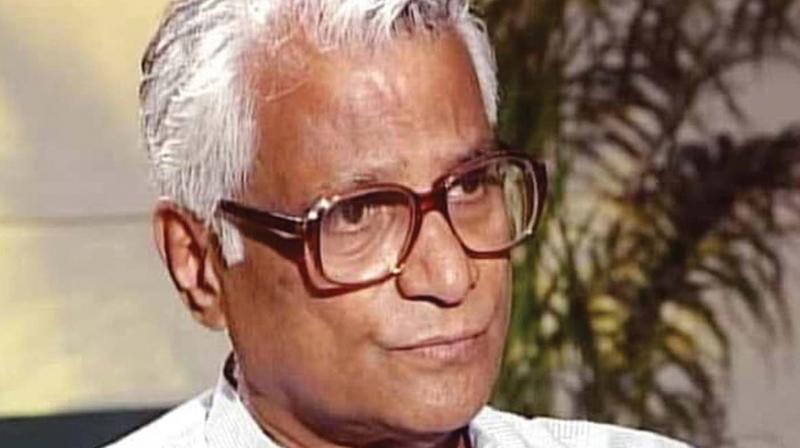George Fernandes, the essential trade unionist

I had an association of more than 40 years with George Fernandes. To me he was a guide, philosopher and a friend.
My association with him started in 1965 when the Praja Socialist Party in Kerala decided to merge with SSP under the leadership of S. M. Joshy, George Fernandes and Madhu Limaye. George become the most remarkable personality in the socialist movement and defeated S.K. Patil in the Lok Sabha election in 1967 in South Bombay. I was a candidate to the Kerala Assembly on SSP ticket from Paravoor during that general election; all the 20 SSP candidates except me and another person won the election. However, my association with George increased as I was working with trade unions and I used to be his translator in public meetings in Kerala.
George led the struggle of the railway workers in 1974. His election as president of the All-India Railwaymen's Federation was through SRMU, the union of the southern railway workers with which I was working closely. My arrest and detention during the Emergency for 18 months was on the ground that I was a close associate of George.
There were two occasions when I, as a trade union leader, contacted George-the-minister and he came to our rescue on both the times. The first was in 1978 when he was the industries minister at the Centre. I had then the occasion to lead a strike in Apollo Tyres in Kerala. The management locked out the factory to defeat the struggle. When I contacted George over phone, he asked me how he can help the workers. I suggested that the government take over the company in public interest under the Regulation of Industries Act. He directed his office to take steps immediately, and even ensured a notification was issued to that effect. The company management obtained a court stay but it had to concede the demands of the workers and to withdraw the lock-out.
Another occasion when I sought his help was connected with the Cochin Shipyard Limited. The Vajpayee government, where George was the defence minister, had decided to privatise it. I along with other trade union leaders went to Delhi to meet George. He was not there, but when he was informed that I was in Delhi to meet him, he returned from the North East.
After hearing our case, he went to the Prime Minister and got the cabinet decision withdrawn in spite of opposition from the then shipping minister.
I had occasion to travel with him and speak in public meetings in Mumbai, Goa and Delhi during election meetings. On or before emergency he wanted me to speak in the Constitutional Club New Delhi to support Kishta Goud Bhoomaiah Movement to save the Naxalite leaders from then Andhra Pradesh from hanging.
Though I had my reservation in allying with George in his political activities along with the BJP and also in the formation of HMKP (I continued with HMS and headed it while George went ahead with his HMKP), I continued my personal contacts and intimacy with him throughout. People say I became a public speaker following in his foot steps. George was a very good administrator. He got Konkan Railway project, considered impractical by many, executed. But for him, it would have remained a dead idea forever.
George has had international contacts not many Indian leaders never had. Many leaders whom I chanced meet have told me about this. In fact, it was the Dalai Lama who inaugurated the meeting to celebrate his 77th birthday in Bangalore in 2008.
(The writer, a former member of the Lok Sabha, is a trade unionist and lawyer)

